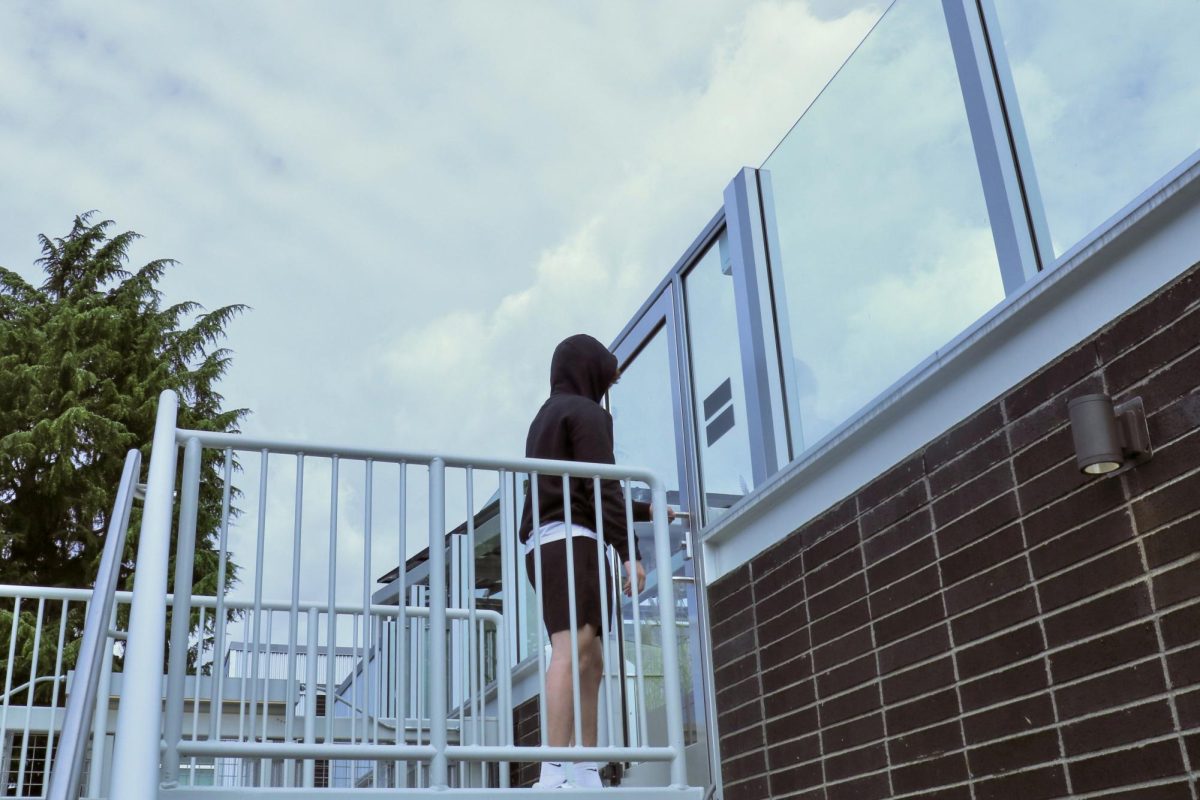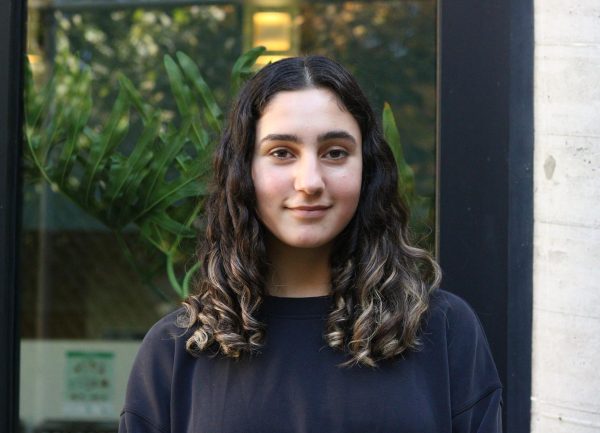
It’s the middle of the night, and 24th Avenue NE is quiet. Two figures climb the exterior fire escape stairs up the back of the ULab building. Reaching the third-floor patio, they press the push bar of a door leading inside the building. It’s unlocked. They open the door slowly, but no alarms go off. The building is silent.
Cameras around the ULab watch the figures wander through the third, second, and first floors, pausing to look into unlocked classrooms and offices. Finally reaching the main entrance, the figures open the door to leave. Alarms go off. The panicked intruders flee the property and are gone when the police arrive.
This is how UPrep’s Director of Facilities, Robert Thom, describes the night of the break-in. He watched the security footage after and saw how the intruders entered the building, what they did inside it, and how they left. The intrusion happened at 1:00 a.m. on Wednesday, April 24, a month after the ULab opened.
Thom sent an email to the staff and faculty, he shared it with the Puma Press. The email included details of the event and reminded faculty to lock their classroom doors at the end of the day. The email also informed staff that the security team would “tighten controls to make the building more secure.”
Although Thom notified faculty members of the break-in, the email did not include the student body. Even though the intrusion happened more than five months ago, this is the first time the Puma Press has heard about it. Thom explained why he decided not to let students know about the break-in.
“I think it causes additional anxiety,” Thom said. “It causes more concern and more questions than it does provide any reasonable information.”
According to a survey sent out to the upper school, 85.7% of students who responded didn’t know about the break-in, and 73.8% believed the student body should have been notified. Among them is sophomore Orrin Speiss, who was unaware of the break-in but believes that some form of communication from the faculty and staff would be beneficial for students’ peace of mind.
“I think it’s going to help with rumors if there’s a strong narrative coming out from administration that is reassuring,” Speiss said. “I think that also shows that they’re taking leadership in the situation.”
Head of School Ronnie Codrington-Cazeau agrees that students should be notified about important events, and be more involved in choices that are made.
“I think students don’t only have to be informed, they should have a voice in major decisions that are going to affect them at school,” Codrington-Cazeau said.
However, she believes this was not an event students had to be involved in. She agrees with Thom that the break-in did not impact students – no one was in danger and the intruders did not steal anything.
“If things affect students, we share it,” Codrington-Cazeau said. “This definitely did not affect students, so we did not feel the need to share it.”
The intruders caused almost no harm to the building itself.
“It looks as if they were unprepared to remove anything from the building and thankfully only did a small amount of damage to the exterior,” Thom’s email said.
However, the possibility thieves stealing expensive materials, and the security risks of easy access to the building, prompted an immediate solution after the break-in.
“Within 24 hours, I had a deadbolt put on the door leading to the third floor,” Thom said.
Despite the security breach having minimal consequences, Speiss still believes there should have been some form of communication with students.
“I think it is better that the admin communicates those things,” Speiss said. “And they definitely could have done a better job with that incident.”



